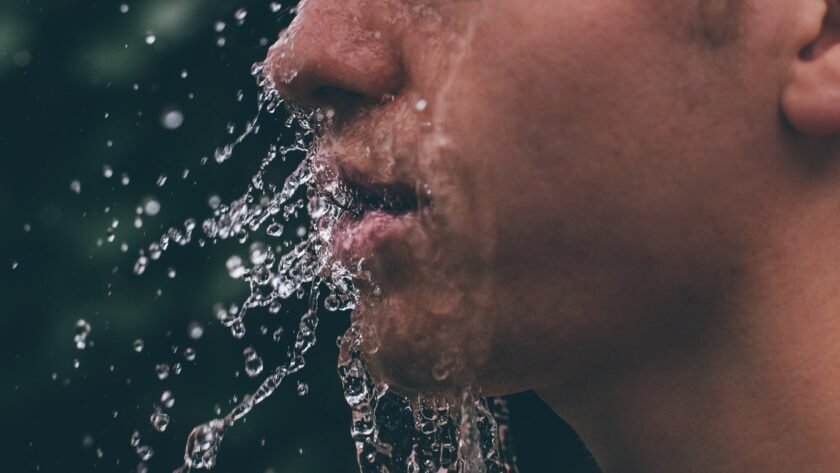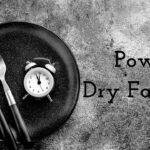Table of Contents
Common Myths About Drinking Water:
- Is it true that when you feel thirsty, you’re already dehydrated?
- No, this is not true. Feeling thirsty is a natural signal from the body.
- Drink when you feel thirsty, unless you have specific health issues.
- Should urine be clear?
- No, urine should be light yellow or straw-colored.
- Very clear urine may indicate overhydration.
- Does drinking water help with weight loss?
- Drinking water alone does not help burn fat.
- Replacing sugary drinks with water may help with weight loss.
- Does drinking water flush toxins from the body?
- No, most toxins are fat-soluble, not water-soluble.
- Drinking excessive water does not lead to toxin removal.
- Is water alone sufficient to prevent dehydration?
- No, you also need electrolytes and sea salt.
- Excessive water intake can lead to hyponatremia (water intoxication syndrome).
- Should you drink large amounts of water?
- Drink when you feel thirsty.
- Increased water intake is necessary in certain situations (exercise, hot weather, sauna, alcohol consumption).
- Should you drink water immediately before eating?
- Generally, it’s fine.
- However, be cautious if you suffer from heartburn or bloating.
Additional Important Information:
- For kidney stones: Drink 2.5 liters of fluids daily.
- For gout: Add baking soda to water.
- For kidney stones: Add lemon to water.
- In ketogenic diet: Pay attention to salt intake.
- Drinking more water does not cleanse the kidneys.
- Vegetables contain 80-95% water, and meats 60-65% water.
- Fat burning produces water in the body.
- The required amount of water varies from person to person.
- Increased thirst may be a sign of diabetes or hypercalcemia.
Always remember that water consumption is individual and depends on many factors. Listen to your body and consult a doctor if you have specific health concerns.
So let’s dive into the details…
Water is essential for life, but there are many misconceptions about its consumption and effects on our health. In this comprehensive guide, we’ll debunk seven common myths about water intake and provide evidence-based insights on proper hydration.
This is an updated topic on all of the myths about water because I found some more data about water that is just utterly ridiculous. These ideas that people have in their mind, let’s talk about them.
Myth #1: Once You Feel Thirsty, Dehydration Has Already Set In
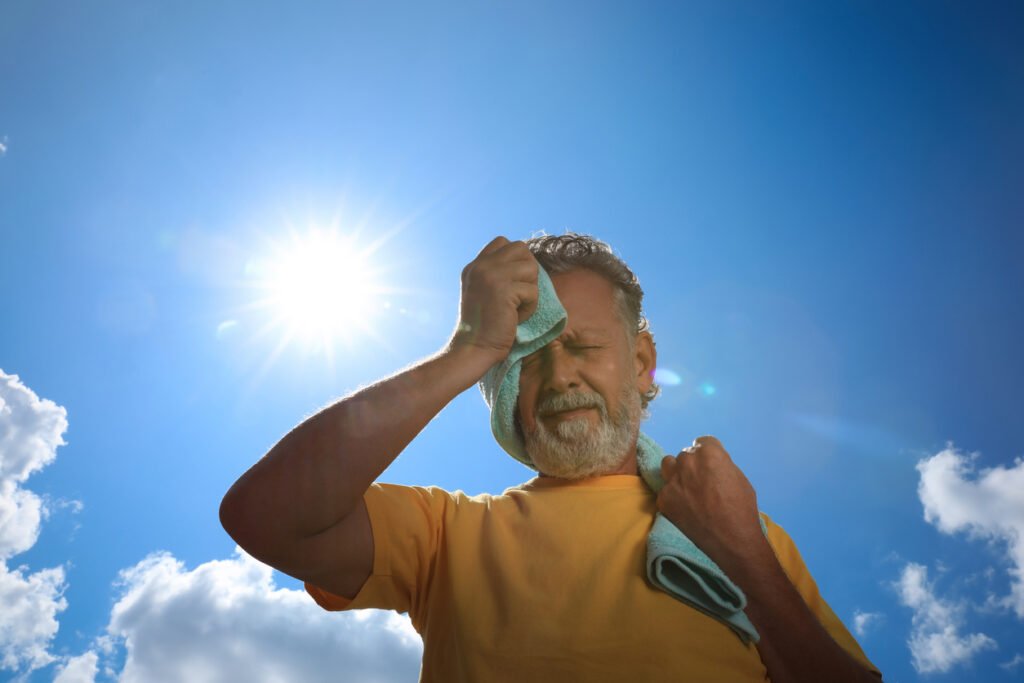
This is utterly ridiculous! I don’t know where people got this idea. It’s like saying by the time you’re hungry, it’s too late, you’re starving. Your body has different perceptions, and thirst is one of them. Your body will let you know when it’s thirsty.
- Thirst is a natural bodily signal.
- Unless you have a medical condition affecting your brain or a lack of salt in your diet, trust your thirst.
Why You Should Trust Your Thirst
I don’t know who’s pushing this idea that we can’t go by thirst anymore and have to drink before we’re thirsty. Our bodies have the perception of thirst! Unless we have brain damage, a tumor, some autoimmune condition affecting the brain, or we’re not having enough salt (which dilutes blood and reduces thirst), you should really go by your thirst. Just drink when you’re thirsty!
- Salt plays a role in regulating thirst.
- Insufficient salt can disrupt thirst signals.
Myth #2: Drinking Water Until Your Urine Is Clear
Your urine should not be clear. It should be slightly straw color or yellow. That’s the normal color of urine. If your urine is too clear, you’re too diluted.
- Normal urine color is slightly straw-colored or yellow.
- Clear urine indicates overhydration.
What Your Urine Color Means
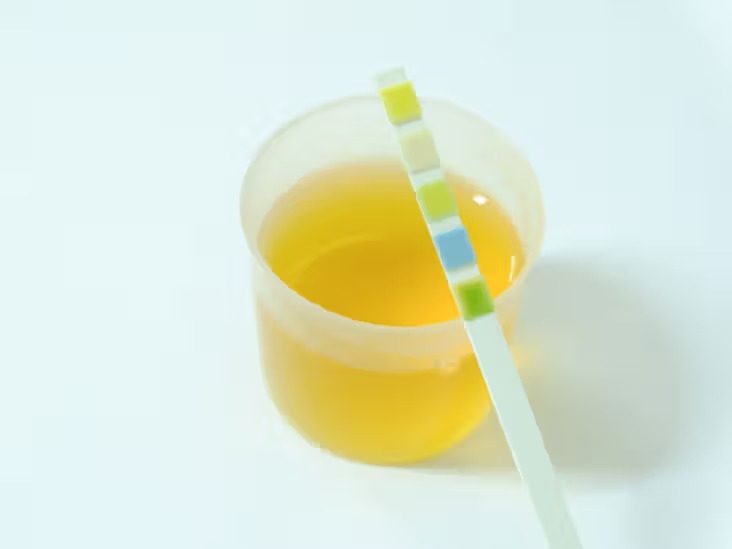
Now, if your urine is too dark, that also doesn’t mean you need to drink more water. That means you might have a liver issue because the liver helps get rid of that pigment.
If your urine is a little bit foamy, it could be more of a kidney problem, or it could be you’re consuming too much protein.
- Dark urine may indicate liver issues.
- Foamy urine may indicate kidney issues or high protein intake.
Myth #3: Stay Hydrated with Water to Feel Full and Reduce Food Intake
Drinking more water is not going to help you lose weight. Now, there is data that shows that if you replace your sodas with water, yes, of course, you’re going to lose weight. You’re consuming less sugar. Water itself doesn’t help you burn fat.
- Water consumption alone does not cause weight loss.
- Replacing sugary drinks with water can aid in weight management.
Myth #4: Drinking More Water Will Flush Out Your Toxins

Most toxins are fat-soluble; they’re stuck in the fat cells. You’re not going to detox by drinking a lot of water. It’s not going to happen.
- Water does not flush out fat-soluble toxins.
Myth #5: Water Will Prevent Dehydration
Well, yes, you do need water for hydration, of course. But you also need electrolytes and sea salt, which is an electrolyte, because what’s going to happen is you’re going to drink all this water, you’re going to dilute a mineral called sodium.
- Water alone is not sufficient for hydration.
- Electrolytes, including sodium, are crucial for hydration.
The Dangers of Overhydration and Electrolyte Imbalance
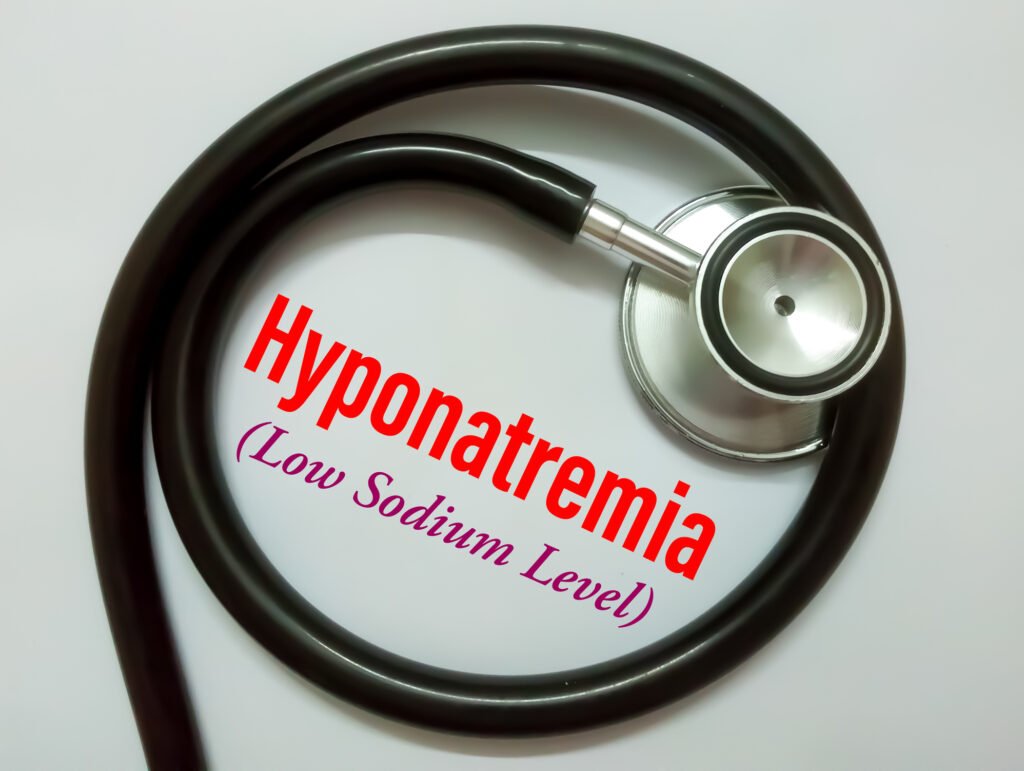
There’s a condition for this called hyponatremia, which means low sodium in the blood. You can get swelling, edema in your brain, cramping, you’re going to feel weak, you’re going to get a headache, you’re going to get irritable, and you’re going to have cognitive problems, and you could even go into a coma.
- Hyponatremia (low sodium) can result from excessive water intake without adequate electrolyte replenishment.
- Symptoms of hyponatremia include
- swelling,
- cramping,
- weakness,
- headaches,
- irritability,
- cognitive issues,
- and even coma.
Real-Life Example of Hyponatremia
Let me tell you a real-life situation, even in my practice. I’ve had people come in that had high blood pressure, they’re on a diuretic, which, by the way, lowers their sodium.
They’re told to drink a lot more water, so now we’re really diluting that sodium. They’re drinking sodas, they’re drinking tea, and on top of that, they’re exercising and sweating, and they’re getting all these side effects.
- Combining diuretics, excessive water intake, and strenuous activity can severely deplete sodium levels.
Myth #6: You Need to Drink More Water
So anytime someone is trying to hydrate, yes, think fluids, but also think sodium as well. But definitely don’t overdo it. Drink when you’re thirsty. Your body will tell you when you’re thirsty if you listen to it.
- Listen to your body’s thirst cues.
- Consider sodium intake alongside fluid intake, especially during strenuous activity or when using diuretics.
When You Need to Increase Water Intake
If you’re exercising, if it’s hot outside, if you’re sweating, if you just did some sauna treatment, or you drank a lot of alcohol, you need to drink a lot more water.
If you’re at risk for a kidney stone, drink at least 2.5 liters of fluid a day. So again, I’m not against water, but I am against drinking massive amounts of water when you create other imbalances.
- Increase water intake during exercise, hot weather, sweating, after sauna use, and after alcohol consumption.
- Individuals at risk for kidney stones should drink at least 2.5 liters of fluid daily.
Myth #7: Drink Water Right Before You Eat
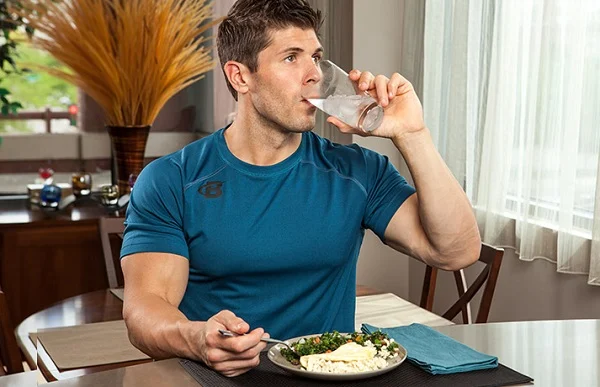
Another point about fluids is that drinking a lot of water right before you eat… you could drink right before eating; it’s not going to be a problem.
But if someone has, let’s say they have acid indigestion, they have heartburn, and they get bloating, it could mean they don’t have enough stomach acid. It might not be the greatest idea to drink a lot of water right before you eat, especially if you have those symptoms.
- Drinking water before meals is generally fine.
- Excessive water intake before meals may worsen symptoms in individuals with low stomach acid.
Water Recommendations for Specific Conditions
And I already talked about this, but if you have kidney stones, you want to consume at least 2.5 liters of fluid every single day, preventing this super-concentrated urine.
If you have gout, uric acid crystals, one thing you can do is you can add a little bit of baking soda to the water to alkalize it, which would then cause the gout symptoms to reduce.
- Individuals with kidney stones should maintain adequate fluid intake to prevent concentrated urine.
- Adding baking soda to water can help alleviate gout symptoms.
Lemon Water and Kidney Stones
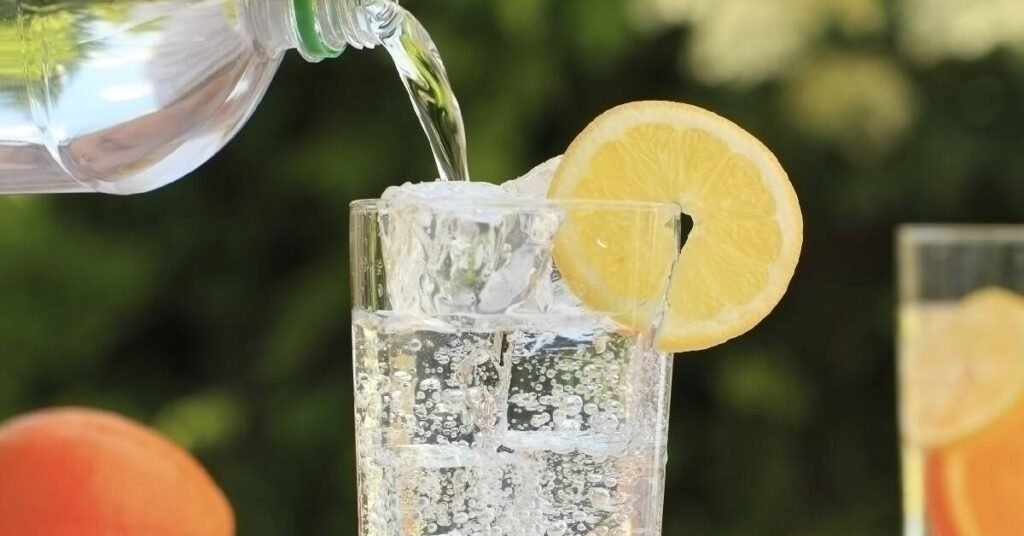
Now, if you have kidney stones, you can add lemon water because the citrates will bind with the oxalates and prevent the formation of oxalates connecting with calcium.
- Lemon water can help prevent kidney stone formation due to its citrate content.
Water and the Ketogenic Diet
Now, if you go on the low-carb ketogenic diet and you’re not consuming enough salt and you’re drinking a lot of water, that can throw off things as well.
You might feel weaker; you might have what’s known as the keto flu or keto fatigue when you need more salt.
- Adequate salt intake is crucial on a ketogenic diet, especially with increased water consumption.
Water and Kidney Health

The next thing that you hear, drinking more water is really good for the kidney because it keeps the kidneys clean and functioning.
There’s this idea that if you keep flushing the kidneys, they’ll be purified. No, that’s not true. You’re just causing the kidneys to work a little bit harder. It’s not going to clean out the kidneys by drinking more water.
- Excessive water intake does not cleanse the kidneys.
How the Kidneys Function
The kidneys filter the blood, and they recycle a lot of things in your blood, but drinking more water doesn’t necessarily clean out the kidneys. There’s no data that says that’s true.
- The kidneys naturally filter and recycle blood components.
Water Content in Food

When you consume certain foods like vegetables, for example, 80 to 95% of those vegetables are water. You are getting a good amount of water from your vegetables. Even meat is between 60 and 65% water.
- Water content in food: vegetables (80-95%), meat (60-65%)
- Many foods, especially fruits and vegetables, contain significant amounts of water.
Water Production During Fat Metabolism
And when you are burning fat, you’re generating water because when you oxidize fat, you generate water and CO2 in the mitochondria. In fact, you’ll generate a little more water than the fat you’re burning because of the oxygen.
So, in other words, let’s say, for example, you burn one pound of fat, you’re going to make a little more than one pound of water. It sounds incredible, but it’s true. But please don’t rely just on that water.
- Fat metabolism produces water as a byproduct.
Individualized Water Intake
And then it’s okay to get most of your water in certain parts of the day, but I wouldn’t necessarily ever force yourself to drink too much because the water intake is an individual thing, and there are so many variables, and what one person needs might not be good for another person.
- Water needs vary greatly between individuals.
Factors Affecting Thirst
As far as thirst goes, your thirst can go up if you’re a diabetic. Your thirst could also go up if you have too much calcium in the blood.
But both of those conditions, diabetes, as well as too much calcium in the blood, it’s called hypercalcemia, can also cause excessive urination. So that’s probably why you’re thirsty.
- Diabetes and hypercalcemia can increase thirst and urination.
Summary
Myth #1: Once you feel thirsty, dehydration has already set in
Truth: While feeling thirsty is a sign that your body needs more fluids, it does not necessarily mean you are dehydrated. Your body is designed to give you signals when you need more water, so just drink when you feel thirsty.
Myth #2: Drink water until your urine is clear
Truth: Your urine should be a pale straw color or light yellow. If it’s too clear, it means you are overhydrated; if it is too dark, it could indicate a potential health issue with your liver or kidneys.
Myth #3: Drink water to feel full and reduce food intake
Truth: While replacing sugary drinks with water can help you lose weight, drinking more water does not directly lead to fat loss.
Myth #4: Drinking more water will flush out toxins
Truth: Most toxins are fat-soluble and are not flushed out by drinking water alone. The body has its own detoxification system, so just focus on staying hydrated instead of trying to “detox” with excessive water intake.
Myth #5: Water will prevent dehydration
Truth: While it is true that hydration is vital for overall health, simply drinking water will not prevent dehydration. Other factors, such as electrolytes play an important role in preventing dehydration.
Myth #6: Drink more water
Truth: Drinking massive amounts of water can lead to imbalances in the body. Certain situations will call for more water intake—just don’t overdo it. If you’re prone to kidney stones, you need at least 2.5 liters of fluid per day
Myth #7: Drink water right before you eat
Truth: Drinking water before meals is fine, but it may cause discomfort for individuals who experience heartburn or bloating.
A few more key points to remember:
- If you’re prone to kidney stones, consider adding lemon to your water.
- Add a little bit of baking soda to your water if you experience gout symptoms.
- The keto flu or fatigue experienced by some individuals on a keto diet is often due to not consuming enough electrolytes with their water, specifically salt.
- Proper hydration is vital for kidney health, but drinking more water won’t cleanse or “flush out” the kidneys.

